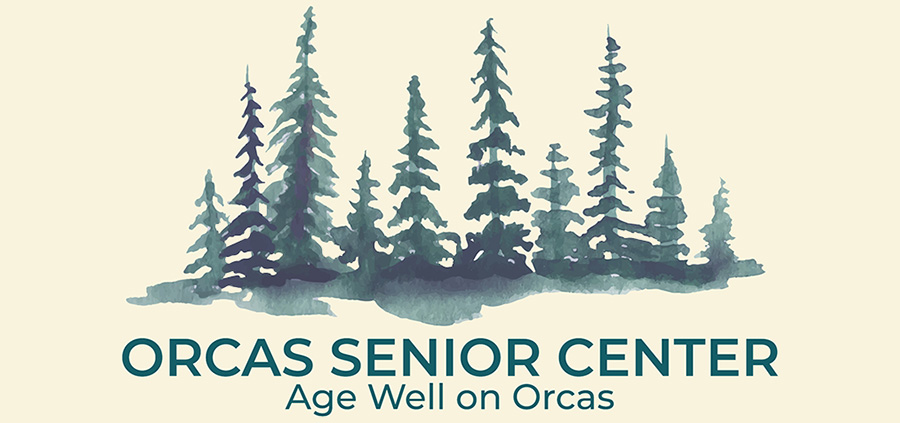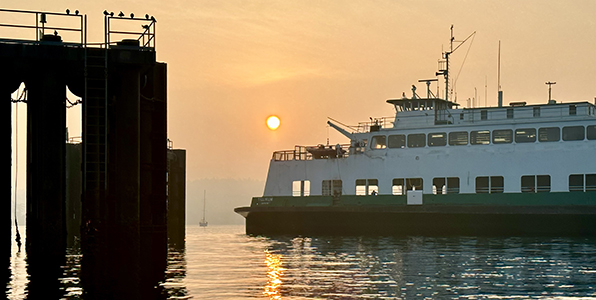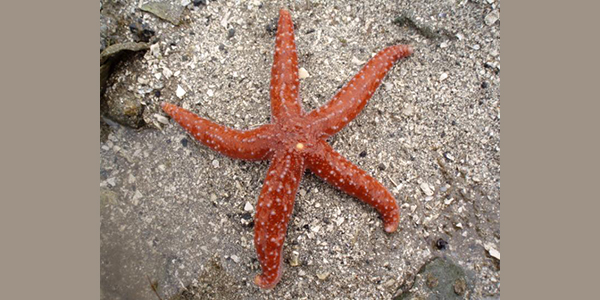By Stan Matthews
County Communications Program Manager
San Juan County Public Works Director Jon Shannon and Utilities Manager Ed Hale told the Council Tuesday that the County’s solid waste utility will be making additional cutbacks to reduce operating losses.
In response to a question from Council Member Gene Knapp, Hale said the utility currently plans to reduce service days at its San Juan and Orcas Island transfer stations, and – pending community input – the utility hopes to move to “co-mingled” recycling service on Lopez Island.
Preliminary figures for 2009 show the utility’s revenues plummeted more than $700,000 below the budgeted amount, leaving capital and operating funds an estimated total of $684,000 in the red.
The cutbacks will close transfer stations on Orcas Island and San Juan Island on Fridays. Plans now call for the new schedule to begin on Friday, February 19, though Hale said he was still conducting discussions with the utility’s largest customer, the Town of Friday Harbor. Service had already been reduced in 2009 by closing the stations on Saturdays. Hale estimates the utility will save $80,000 per year by being open just five days per week. Two solid waste utility employees received lay-off notifications Monday in anticipation of the reductions.
The Lopez Island solid waste facility has been the only site which has required recycling to be sorted by type of material. Hale anticipates that accepting “co-mingled” recycling will save the County a total of approximately $30,000 per year in transportation and recycling costs, plus it will allow more types of plastic to be recycled.
The County Council has conducted detailed discussions on options for changing the system of funding the solid waste utility at three of its recent meetings. The utility is now funded almost entirely by “tipping fees” charged by weight of solid waste received. A 40% drop in solid waste volume, blamed primarily on the construction downturn, hit the utility hard.
At Tuesday’s Council meeting, Shannon said he fears that simply raising tipping fees to both make up for the shortfall and generate funds needed for capital improvements could send the utility into a “death spiral” with skyrocketing rates causing further reductions in volume until the operation is impossible to sustain.
Shannon told the Council that operations and capital needs can be dealt with in the short run through service reductions and borrowing, so the Council can have time to agree on a sustainable means of funding the utility. The utility faces financial challenges in the immediate future, needing to make expensive capital improvements to meet Department of Ecology standards and also to design and construct a replacement transfer station facility on San Juan Island.
Among the potential sources of additional revenue being discussed are real estate parcel fees, “gate fees” for haulers entering the stations, fees for recycling and “hook-up”, fees for new property development, and closing the gap between self-haul and commercial waste haulers.
After hearing Shannon’s report, the Council postponed a February 9 public hearing on what was expected to be a short term funding solution, so that it can use the time to work on a comprehensive long-term funding plan.
**If you are reading theOrcasonian for free, thank your fellow islanders. If you would like to support theOrcasonian CLICK HERE to set your modestly-priced, voluntary subscription. Otherwise, no worries; we’re happy to share with you.**







